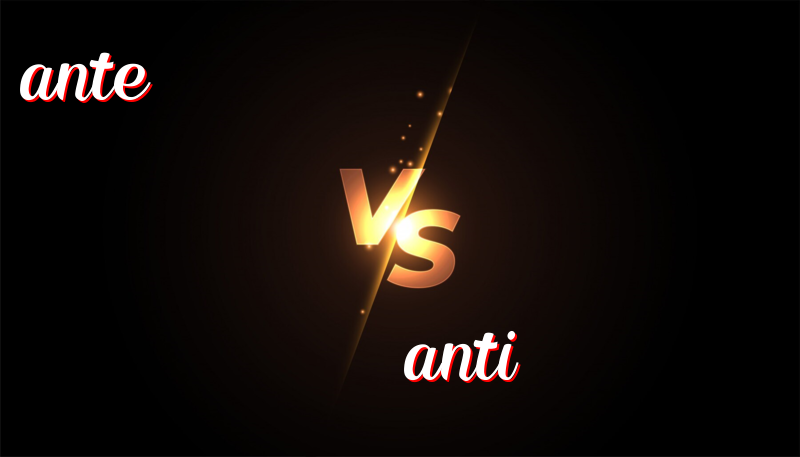Ante Up or Anti Down: A Fun Word Duel!
Understanding the Difference Between “Ante” and “Anti”
English is a language with many words that sound similar but have different meanings. Today, we will learn about two such words: “ante” and “anti.” These words come from Latin and are used differently in sentences.
History of the Words
The word “ante” comes from Latin and means “before” or “in front of.” On the other hand, “anti” also comes from Latin but has a different meaning, which is “against” or “opposite.” Knowing this helps us use these words correctly.
How to Use “Ante” and “Anti”
Using “Ante”
The word “ante” is often used as a prefix. It is added in front of other words to change their meaning to “before” something. Here are five example sentences:
- The prefix “ante” in “anteroom” means a room before the main room.
- In history, the antebellum period refers to the time before a war.
- The antecedent of a pronoun is the noun that came before it.
- She looked at the antechamber before entering the main hall.
- He asked for an ante to start the poker game, meaning money before the game begins.
Using “Anti”
The word “anti” is also used as a prefix. It signifies being “against” or “opposite” something. Here are five example sentences:
- The medicine works as an anti-inflammatory, fighting against swelling.
- She wore antibacterial soap to kill germs.
- He is anti-smoking, meaning he is against smoking.
- The antivirus software protects the computer from viruses.
- The antidote works against the poison, helping to cure people.
Trick to Remember the Difference
A simple trick to remember the difference is to think of “ante” as “before”—like an “antechamber” is a room you see before another room. For “anti,” think of it like “anti-bully,” which means against bullying. This can help you remember what each word means.
Summary
In conclusion, “ante” means before something, while “anti” means against something. Understanding these differences helps us use the words correctly in sentences. Remember the trick and the history to make it easier to choose the right word.

Leave a Reply
You must be logged in to post a comment.